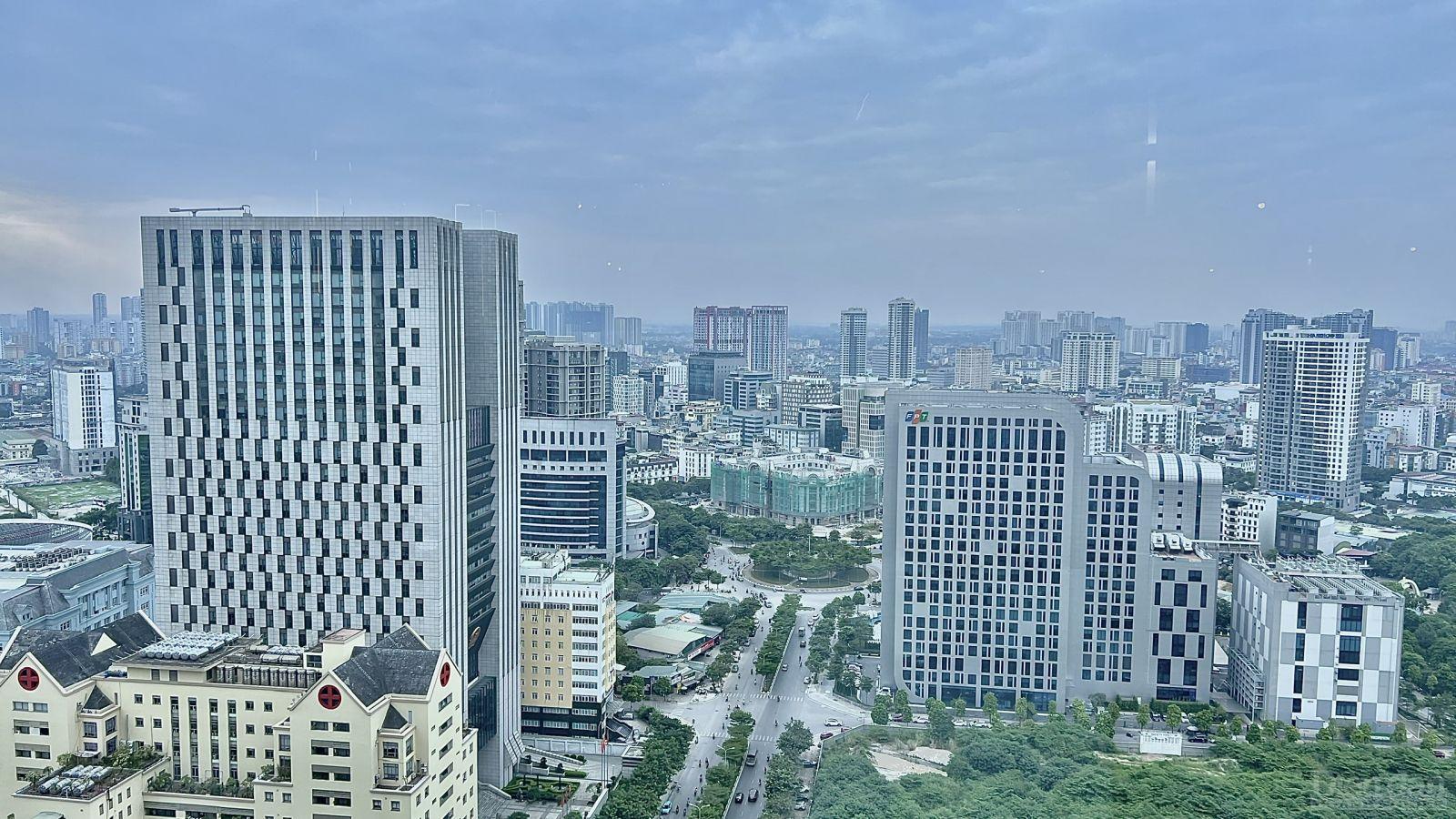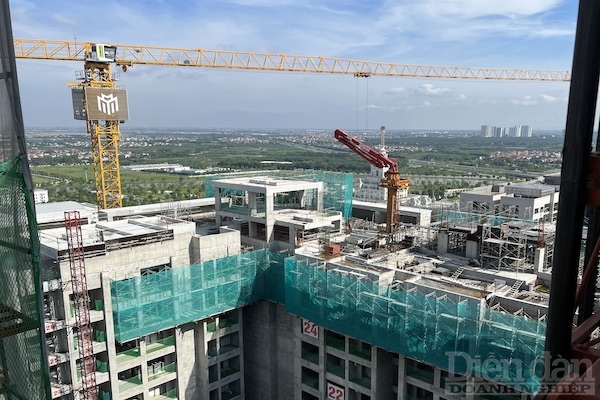Will property prices rise in the foreseeable future?
According to VARS research, there is a strong possibility of real estate prices rising in areas with a lack of supply, particularly in high-demand property categories.
Capital policies and actions by Government authorities to restrict the real estate market have drastically decreased the supply of residential homes from 2018 to the present. The constant rise in housing demand puts pressure on supply, resulting in the formation of new price levels.

Limited supply pushes housing prices higher
According to VARS statistics, land values have risen hundreds of times in the last ten years. In 2021 alone, typical housing prices increased by two digits, even several times over the previous year. Low interest rates and record-high inflation both contribute to the dramatic rise in house prices, but the underlying issue is a lack of supply.
With population growth and existing housing demand, the Ministry of Construction estimates that roughly 70 million square meters of urban housing must be created each year. Given the present supply scenario, VARS anticipates that Vietnam would face a housing shortfall of roughly 300,000 units per year owing to the rise of new urban families, particularly driven by young people's desire for independent living. This extreme scarcity will definitely drive up property prices even more. This scarcity, however, does not effect all segments consistently, which means that not all forms of real estate will be affected in the same manner.
In actuality, supply shortages exist only in certain locations and segments. While rural regions and the outskirts of major cities, as well as Type III and IV cities, have enough supply, metropolitan centers are experiencing oversupply owing to rising housing demand. Looking generally, while the supply of inexpensive urban housing is likely to remain short in the future, the high-value resort real estate segment is presently present in the inventories of most large real estate conglomerates.
Prices will grow at a slower rate in the future. As a highly localized product, real estate prices will rise at varying rates in different locations and marketplaces, mostly dependent on the supply-demand balance. However, property prices may not grow in 2024 as a whole.
Proactive ways to ease real estate market issues are now effective. Credit funds are now available to market supply. However, house loans are steadily declining as a result of the current economic downturn, as acquiring a home is not a top priority for most individuals.
Furthermore, the market's current supply does not correspond to many people's wants or financial capacity. The difficult lending circumstances, combined with a dangerous investment climate, make investors more cautious, resulting in fewer prospective clients.
Difficulties in creating social housing projects, such as dealing with investment processes, obtaining financing, and selling properties, will have a direct influence on housing costs by slowing project delivery and development. The longer it takes to solve the aforementioned issues, the more probable it is that house prices will climb further.
Due to the rising danger of bad debts, banks have been obliged to auction off thousands of real estate goods in order to collect arrears. Millions of debts backed by real estate assets are anticipated to expire in the near future. The outcomes of these loans, as well as the decisions made by "debtors" in settling this financial issue, have the ability to impact house values. Whether people opt to sell or face foreclosure, the housing supply will grow, limit ing the rate of price increases in the market.
However, VARS believes that the apartment market in major cities will continue to stabilize as supply continues to fall short of consumer and investor demand. Simultaneously, the majority of new developments in Hanoi and HCM City are in outer districts where land reserves are still plentiful. Continuous infrastructure enhancement will drive up the costs of these projects in the future.
The most essential connection in real estate price hikes is a shortage of supply owing to optimum land utilization. For true market growth, it is also necessary to deploy regulatory mechanisms to balance supply and demand.

First and foremost, precise methods for planning, assessment, approval, and execution are required, according to VARS. Authorities with authority must use planning tools efficiently, revise plans and land use plans, and control supply by designating land development reserves soon after planning. At the same time, the public must be informed and given the chance to provide comment on planning and land use plans. To guarantee that land is used wisely, effectively, and to maximize its "utility value."
Second, "suspended" planning must be eliminated, and a distinct legal channel for land transactions in planned regions must be established. Simultaneously, rigorous supervision over contractors' management expertise and financial ability is critical to assure project progress, minimize financial losses, and resource waste.
The greater the housing demand, and the more out of control it becomes, the higher real estate prices will be, decreasing people's access to homes by enormous percentages. As a result, it is vital to investigate possibilities for applying taxes fit for accumulated assets, the amount of real estate ownership, and to lower the initial force. Simultaneously, credit regulations that limit the ease of property investment, such as charging higher interest rates on second or third homes, might be enacted.
However, VARS believes that the apartment market in major cities will continue to stabilize as supply continues to fall short of consumer and investor demand. Simultaneously, the majority of new developments in Hanoi and HCM City are in outer districts where land reserves are still plentiful. Continuous infrastructure enhancement will drive up the costs of these projects in the future.
The most essential connection in real estate price hikes is a shortage of supply owing to optimum land utilization. For true market growth, it is also necessary to deploy regulatory mechanisms to balance supply and demand.
According to VARS, tight standards are required for planning, assessment, approval, and execution. Authorities with jurisdiction must use planning tools efficiently, revise plans, land use plans, and restrict supply by awarding land development reserves promptly after planning. Simultaneously, the public must be informed and given the chance to provide comment on planning and land use plans. To guarantee that land is used wisely, effectively, and to maximize its "utility value."
Second, "suspended" planning must be eliminated, and a distinct legal channel for land transactions in planned regions must be established. Simultaneously, rigorous supervision over contractors' management expertise and financial ability is critical to assure project progress, minimize financial losses, and resource waste.
The greater the housing demand, and the more out of control it becomes, the higher real estate prices will be, decreasing people's access to homes by enormous percentages. As a result, it is vital to investigate possibilities for applying taxes fit for accumulated assets, the amount of real estate ownership, and to lower the initial force. Simultaneously, credit rules that limit the ease of property investment, such as charging higher loan rates on second or third homes, can be enacted."








